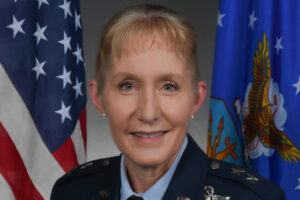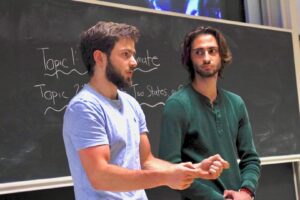Young social innovators convened in Austin during the past several days as part of the Dell Social Innovation Challenge (DSIC), the flagship social entrepreneurship initiative of the RGK Center for Philanthropy and Community Service in the LBJ School of Public Affairs at The University of Texas at Austin. At last night’s awards ceremony held at ACL Live at the Moody Theater in downtown Austin, Essmart Global was announced as the winner of the $50,000 grand prize. Essmart Global was selected from five teams for the prize, which recognizes undergraduate and graduate students who envision, create and implement social innovation projects that help communities around the world.
Introduced in 2007, the Challenge provides students with world-class teaching and training, as well as startup capital and access to a network of mentors and advisers. Entries were judged on three primary criteria: clarity of the innovation and potential significance of social impact; demonstration of a high probability of success; and potential impact from winning. In 2012 the Challenge received nearly 1,800 entries from more than 105 countries, which included 10 student teams from the university who competed as semi-finalists and represented a variety of disciplines including public affairs, business, engineering, liberal arts and communications.
Essmart Global gives retail shop owners in rural India access to products that help improve their customers’ lives by combining process innovations in sourcing high-quality technologies and distributing them to rural areas. If the project is scaled successfully, nearly 10 million mom-and-pop retail shop owners could gain knowledge about new technologies and an additional higher-margin revenue stream.
“We’re honored that the DSIC, Dell and the University of Texas are willing to invest in our project,” said Jackie Stenson of Essmart Global. “Winning the Dell Social Innovation Challenge grand prize will help us scale Essmart Global to improve people’s lives by giving them access to social impact technologies. We’re deeply passionate about our project, and we’re so thankful for the opportunity.”
The five finalists traveled to Austin to participate in a Finalist Weekend full of networking and mentoring with social innovation leaders. They pitched their ideas to a panel of judges comprising business leaders, entrepreneurs and venture capitalists, and included University of Texas System Chancellor Francisco Cigarroa. A winner was selected following the pitches.
“Through innovation and action, young people are addressing the world’s most pressing human issues by turning their passion into real solutions,” said Suzi Sosa, executive director for the Challenge and associate director of the RGK Center. “DSIC is on the leading edge of this effort; we bring together some of the world’s best and brightest students who are united by the common goal of social change. We are thrilled to partner with Dell in assisting some of these young entrepreneurs, who we know will truly change the world.”
In 2011, DSIC awarded five cash prizes totaling $100,000. The 2012 Challenge presented 27 awards, including more than $145,000 in cash prizes and more than $160,000 worth of in-kind prizes. With plans to grow to 20,000 entries each year by 2016, the DSIC promises to become the largest and most prestigious global competition for student social entrepreneurs.
The Challenge first launched in 2007 as the RGK Social Innovation Competition and was expanded in 2008 with Dell Inc. as the competition’s title sponsor contributing tools, technology and funding. At the close of the 2011 Challenge, the university announced a $5 million grant from Dell to be distributed over five years to expand the Challenge’s efforts worldwide and support its goal of engaging more students per year. Dell also contributed judges and mentors to the Challenge with more than 600 Dell employees volunteering during the course of the year.
“We aim to create a movement and understanding that innovation and entrepreneurship are not ‘born’ but really can be ‘bred’ through the right community, support, tools and inspiration,” said Trisa Thompson, Dell’s vice president of corporate responsibility. “Our company was founded in a dorm room, and we continue to encourage students to think big and bring ideas to life that can change the world.”
The other four 2012 finalists:
- The Humanure Power Project: The Humanure Power Project aims to provide sanitation and electricity to rural India by building community toilets and harnessing human waste to produce methane and electricity that can be distributed to the community via 12-V batteries. The Humanure Power Project won the $20,000 second prize.
- Nanoly: Nanoly’s technology enables cheap, convenient, and safe delivery of vaccines to anywhere in the world with improved storage and transportation without refrigeration. Nanoly plan to make vaccines accessible to anyone in the world, particularly those who live in hard-to-reach areas. Nanoly won the $10,000 third prize and the people’s choice award.
- e-Education in 5 Continents: e-Education in 5 Continents seeks to apply the e-learning system, a system that uses DVD as media to bring best teacher resources to remote and poor areas, to under-developed regions to help local students get the best education and get well-prepared for university entry exams.
- 33 Buckets: Using the latest technology, 33 Buckets has designed a filter that can provide a girls’ school in rural Bangladesh with arsenic-free water that they can sell to the community in a sustainable microfinance business.



